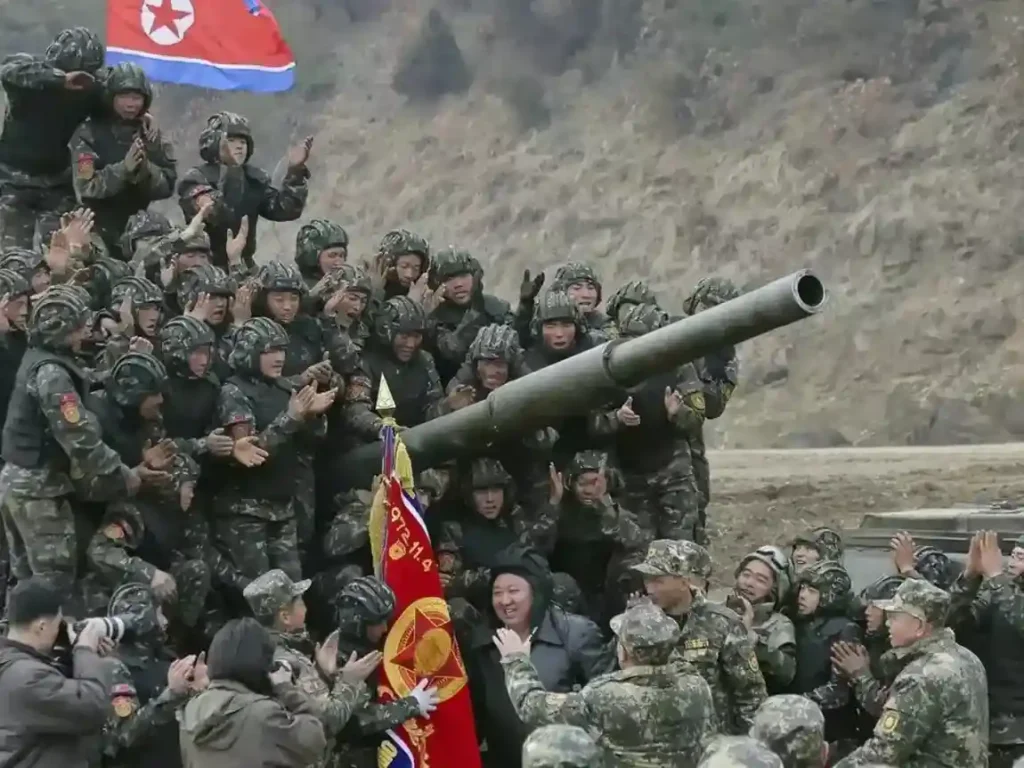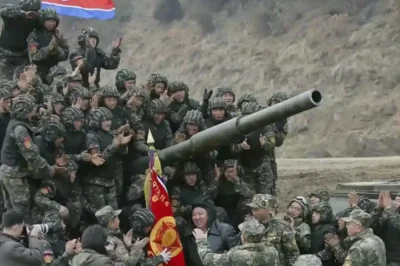
Massive Casualties Reported
In a startling revelation, South Korea’s National Intelligence Service (NIS) has reported that approximately 4,700 North Korean soldiers have been killed or wounded while fighting for Russia in Ukraine. The intelligence assessment includes around 600 fatalities and over 2,000 wounded troops who were reportedly repatriated to North Korea between January and March 2025. These casualties mark one of the most significant foreign troop losses in Russia’s ongoing conflict with Ukraine, underscoring the deepening military collaboration between Pyongyang and Moscow.
Troops Deployed Under New Defence Pact
The deployment follows a landmark defence treaty signed between Russia and North Korea in 2024, pledging mutual support in case of external aggression. According to the NIS, nearly 15,000 North Korean soldiers were sent to Russian-occupied Ukrainian territory in two separate waves. Many of the deployed troops were initially undertrained and inexperienced, but they have reportedly become more adept in combat operations after months on the frontlines. Still, the steep learning curve and gruelling battlefield conditions have taken a heavy toll.
A Strategic Exchange of Weapons and Manpower
In return for its support, Pyongyang has received advanced military technologies from Moscow, including reconnaissance satellites and surface-to-air missile systems. North Korea, in turn, has supplied artillery, drones, and other tactical equipment to aid Russia’s war efforts. This exchange of manpower and military hardware illustrates a growing alliance between two of the most heavily sanctioned regimes in the world. Analysts suggest that this cooperation is reshaping the geopolitical calculus not just in Europe, but also in the Indo-Pacific region.
Harsh Realities on the Battlefield
Reports emerging from South Korean intelligence and Ukrainian sources paint a grim picture of the conditions North Korean soldiers face in Ukraine. Many of the casualties occurred due to poor preparation, inadequate supplies, and extreme pressure to fight on foreign soil. Some soldiers reportedly took their own lives to avoid capture, reflecting the high-stress environment and the fear of harsh punishment back home if taken prisoner. The NIS has called attention to the expendable nature of these troops, raising international humanitarian concerns.
Global Condemnation and Rising Alarm
The news has drawn sharp criticism from international observers and human rights organizations. The idea of deploying foreign troops as expendable assets has led to growing calls for accountability at the United Nations. Western intelligence agencies are now closely watching the Pyongyang-Moscow axis, concerned that the alliance could embolden North Korea in future regional confrontations, particularly concerning the Korean Peninsula and Japan.
A New Chapter in North Korea’s Military Strategy
Traditionally focused on internal defence and border militarization, North Korea’s decision to deploy thousands of troops to a conflict zone halfway across the globe marks a striking evolution in its military posture. It is the first known instance of North Korea committing troops to an overseas war since the Korean War ended in 1953. Analysts suggest this may signal a long-term ambition by Pyongyang to project its military influence more globally, especially under the security umbrella of a powerful partner like Russia.
Roads to Deeper Cooperation
In a related development, Russia has begun constructing a road bridge to North Korea across the Tumen River, according to Russian Prime Minister Mikhail Mishustin. This new infrastructure is intended to facilitate trade, logistics, and potentially future troop or equipment movement. The project further illustrates the rapidly strengthening ties between the two countries, particularly at a time when both face increasing isolation from the West.
Implications for Global Security
The mounting North Korean casualties and their ongoing participation in the Ukraine war may have far-reaching consequences. For one, it may intensify scrutiny of Russia’s war strategies, especially its increasing reliance on foreign fighters. For another, it could provoke stronger reactions from regional powers such as South Korea, Japan, and the United States. As both Russia and North Korea continue to challenge the international order through defiance of sanctions and global norms, their growing alliance poses new tests for global diplomacy and peace efforts.








































Leave a Reply